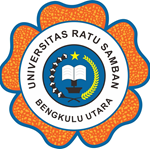(23) Keadilan Sosial dalam Administrasi Publik: Membangun Masyarakat yang Adil dan Inklusif
(1) Sekolah Tinggi Ilmu Administrasi, Bengkulu, Indonesia
(2) Sekolah Tinggi Ilmu Administrasi, Bengkulu, Indonesia
(3) Sekolah Tinggi Ilmu Administrasi, Bengkulu, Indonesia
(4) Sekolah Tinggi Ilmu Administrasi, Bengkulu, Indonesia
Copyright (c) 2024 Ditasman Ditasman, Erlian Dwisnu, Akbar Ari Susanto, Redho Alvego
DOI : https://doi.org/10.37638/sengkuni.4.2.%p
Abstract
Social justice in public administration is a key cornerstone in efforts to build a just and inclusive society. Social justice-oriented public administration aims to eliminate inequality, distribute resources equitably, and provide fair public services to all citizens. In this context, public administration becomes an important tool in realizing the vision of a society based on the principles of justice, equality and inclusion, so that every individual has equal opportunities to develop and participate in social and economic life. Thus, it is important for the government and stakeholders to remain committed to promoting social justice in every aspect of public administration in order to create a more just and inclusive society.
Keywords
References
Hood, C., James, O., & Scott, C. (2000). Regulation of government: Has it increased, is it increasing, should it be diminished? Public administration, 78(1), 131-161.
Frederickson, H. G. (1997). The spirit of public administration. Jossey-Bass.
Rawls, J. (1971). A theory of justice. Harvard University Press.
Denhardt, R. B., & Denhardt, J. V. (2000). The new public service: Serving rather than steering. Public Administration Review, 60(6), 549-559.
Van Wart, M. (2003). The dynamics of public administration: Guidelines to exemplary performance. M.E. Sharpe.
Svara, J. H. (2001). The myth of the dichotomy: Complementarity of politics and administration in the past and future of public administration. Public administration review, 61(2), 176-183.
Perry, J. L., & Kraemer, K. L. (1983). Research methodology in public administration. Marcel Dekker.
Niskanen, W. A. (1971). Bureaucracy and representative government. Aldine-Atherton.
Stoker, G. (1998). Governance as theory: Five propositions. International social science journal, 50(155), 17-28.
Stillman, R. J. (1999). Public administration: Concepts and cases. Houghton Mifflin.
Osborne, D., & Gaebler, T. (1992). Reinventing government: How the entrepreneurial spirit is transforming the public sector. Addison-Wesley.
Bryson, J. M., & Crosby, B. C. (1992). Leadership for the common good: Tackling public problems in a shared-power world. Jossey-Bass.
Kettl, D. F. (1997). The global revolution in public management: Driving themes, missing links. Journal of Policy Analysis and Management, 16(3), 446-462.
Dubnick, M. J., & Frederickson, H. G. (2011). Public administration and democracy: Problems and prospects. Public Administration Review, 71(1), 82-90.
Rosenbloom, D. H. (2016). Public administration: Understanding management, politics, and law in the public sector. McGraw-Hill Education.
Thompson, F. (2003). The future of the public administration. Public administration review, 63(6), 700-707.
Kickert, W. J. M., Klijn, E. H., & Koppenjan, J. F. M. (1997). Managing complex networks: Strategies for the public sector. Sage Publications.
Ostrom, V. (1973). The intellectual crisis in American public administration. Public administration review, 33(3), 233-238.
Moynihan, D. P. (2008). The dynamics of performance management: Constructing information and reform. Georgetown University Press.
Osborne, S. P., & Brown, K. (2013). Innovation in public services: Strategies, cases and policies. Routledge.
Article Metrics
Abstract Views : 35 timesRefbacks
- There are currently no refbacks.
Copyright (c) 2024 Ditasman Ditasman, Erlian Dwisnu, Akbar Ari Susanto, Redho Alvego

This work is licensed under a Creative Commons Attribution-ShareAlike 4.0 International License.
SENGKUNI JOURNAL: Social Science and Humanities Studies indexed by:
Wisma PDM Bengkulu
Mail : Jl. Kebun Veteran No 12, Kel. Nusa Indah Kec. Ratu Agung Kota Bengkulu
Telp : 081541234500 / 081328676033
email: sengkuni@pdmbengkulu.org / sengkunijournal@gmail.com

This work is licensed under a Creative Commons Attribution-ShareAlike 4.0 International License













_1.png)




